BARTELLA, Iraq — The mood was celebratory when Prime Minister Haider al-Abadi arrived in Mosul on July 9 to declare the city liberated from ISIS. Abadi’s presence had marked a momentous victory in a gruesome battle that had raged for over nine months, claiming the lives of tens of thousands of civilians and displacing nearly half a million more.But 13 miles away at a displaced persons camp in the town of Bartella, jubilance was supplanted by a cloud of uncertainty and despair. Designed specifically for people suspected to have links to ISIS fighters, Bartella was home to 170 families who were forcibly relocated by Iraqi security forces during the fight for Mosul. According to a directive issued by Mosul’s district council, residents would “receive psychological and ideological rehabilitation,” after which they would be reintegrated into society.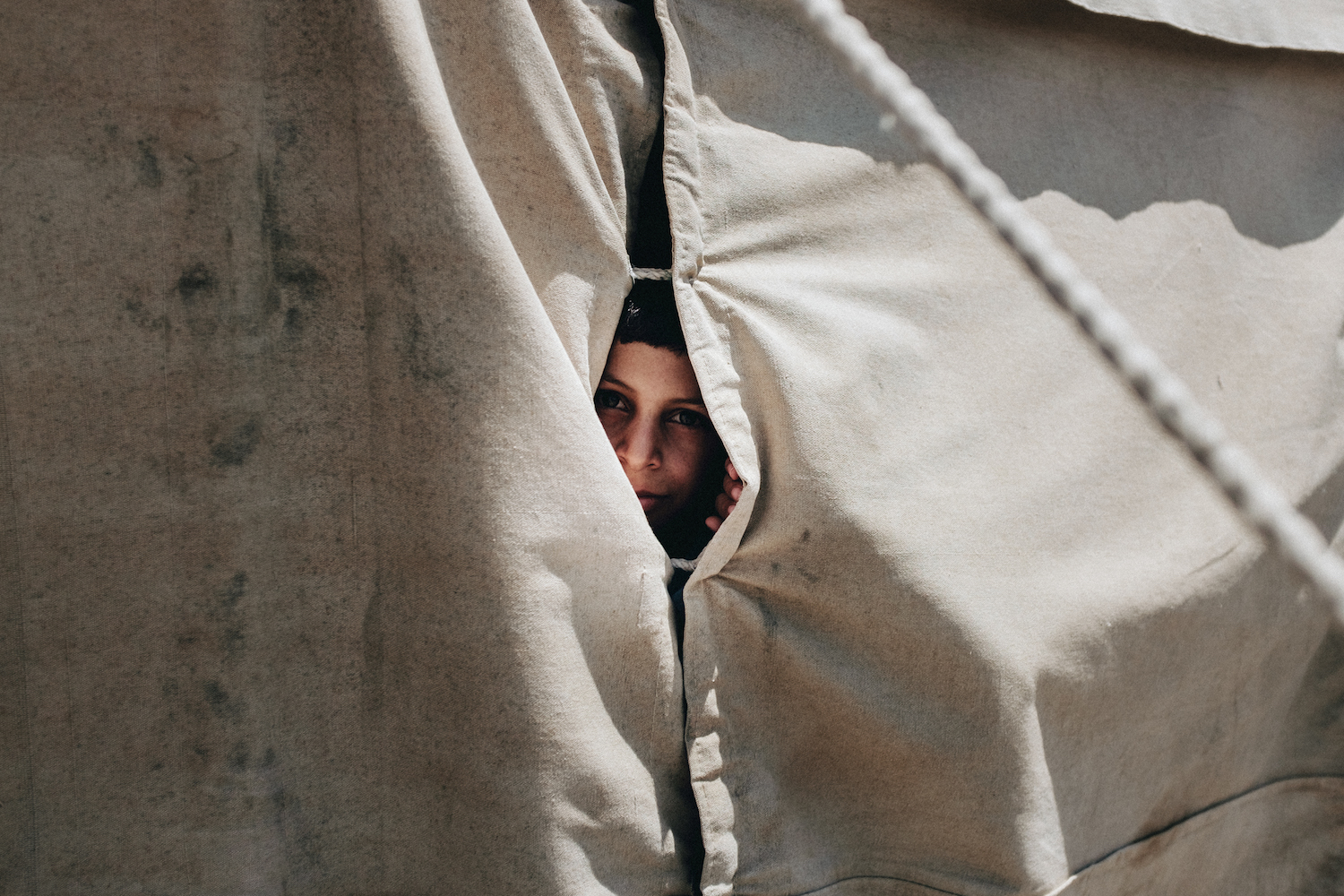 From its inception Bartella gave virtually no indication rehabilitation efforts were underway. Instead it appeared as an open-air prison camp for people whose only crime was their possible ties to ISIS, Human Right Watch’s Belkis Wille told VICE News.“The way this was framed was that this was going to be some kind of rehabilitation camp, with some kind of rehabilitation program, and I have not seen anything to suggest, anywhere in Iraq, that such a program actually exists,” said Wille, senior Iraq researcher at HRW. “The camp was theoretically there to provide rehabilitation, but in reality it was basically just going to be this awful prison camp with minimal services. “The Bartella camp was closed on July 17 and the families were relocated to regular IDP camps following intense pressure from human rights groups who warned it was in violation of international law. But its brief existence laid bare many challenges Iraq faces in its bid to carve out a peaceful future after ISIS, one already riven by sectarian fissures and tribal differences that have simmered beneath the surface for decades.VICE News went inside the Bartella refugee camp before it closed to see firsthand how families linked to ISIS were living in the aftermath of Mosul’s deadly liberation, and the stigma they face moving forward.
From its inception Bartella gave virtually no indication rehabilitation efforts were underway. Instead it appeared as an open-air prison camp for people whose only crime was their possible ties to ISIS, Human Right Watch’s Belkis Wille told VICE News.“The way this was framed was that this was going to be some kind of rehabilitation camp, with some kind of rehabilitation program, and I have not seen anything to suggest, anywhere in Iraq, that such a program actually exists,” said Wille, senior Iraq researcher at HRW. “The camp was theoretically there to provide rehabilitation, but in reality it was basically just going to be this awful prison camp with minimal services. “The Bartella camp was closed on July 17 and the families were relocated to regular IDP camps following intense pressure from human rights groups who warned it was in violation of international law. But its brief existence laid bare many challenges Iraq faces in its bid to carve out a peaceful future after ISIS, one already riven by sectarian fissures and tribal differences that have simmered beneath the surface for decades.VICE News went inside the Bartella refugee camp before it closed to see firsthand how families linked to ISIS were living in the aftermath of Mosul’s deadly liberation, and the stigma they face moving forward.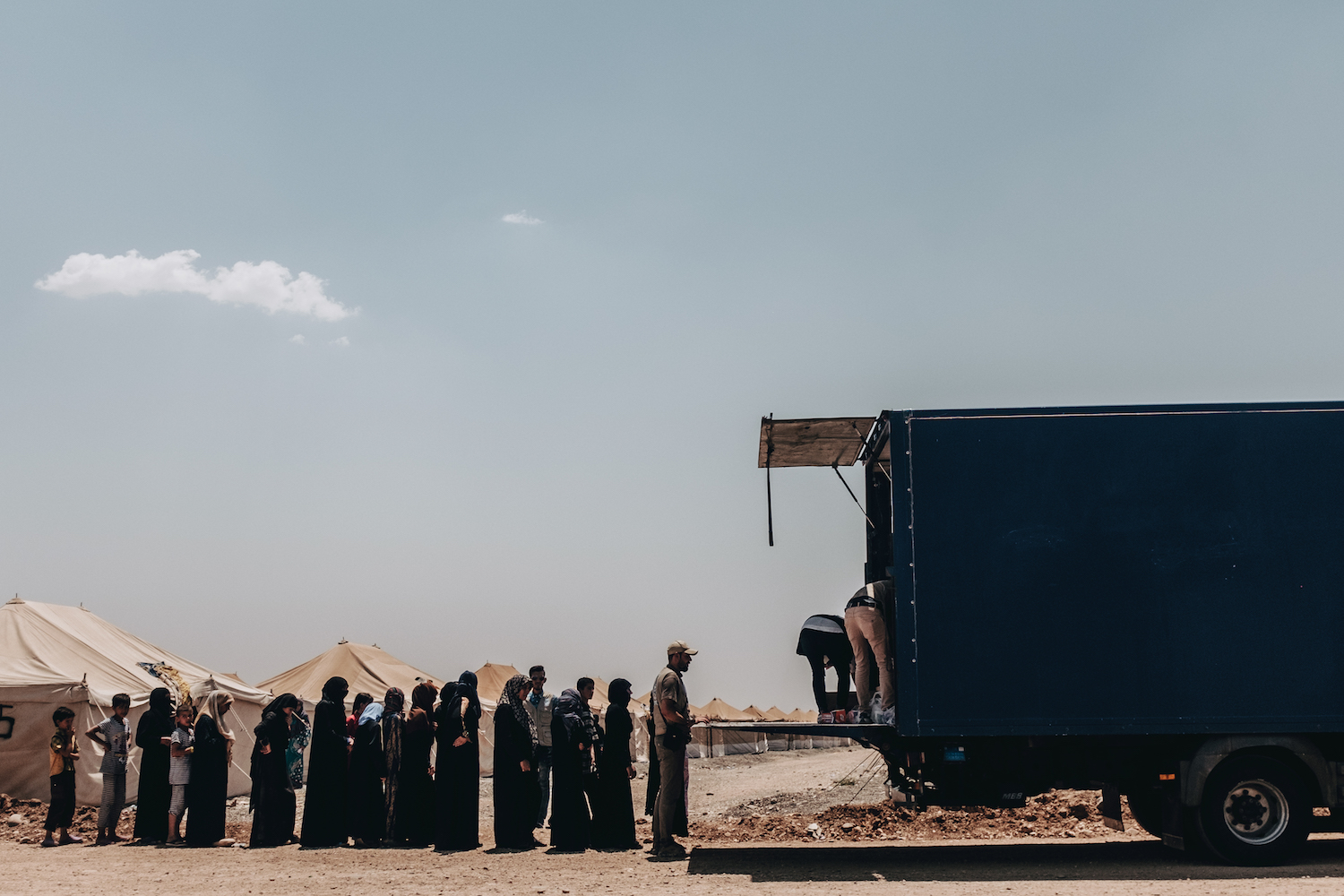 “I don’t know why we help these people. They are all Daesh [ISIS],” a security officer muttered between sips of water. He was standing in the shade of a truck, keeping watch as volunteers from One World Medical Mission distributed supplies to a line of women and children waiting in the sweltering heat to receive packages of diapers, toothbrushes, and baby formula.
“I don’t know why we help these people. They are all Daesh [ISIS],” a security officer muttered between sips of water. He was standing in the shade of a truck, keeping watch as volunteers from One World Medical Mission distributed supplies to a line of women and children waiting in the sweltering heat to receive packages of diapers, toothbrushes, and baby formula.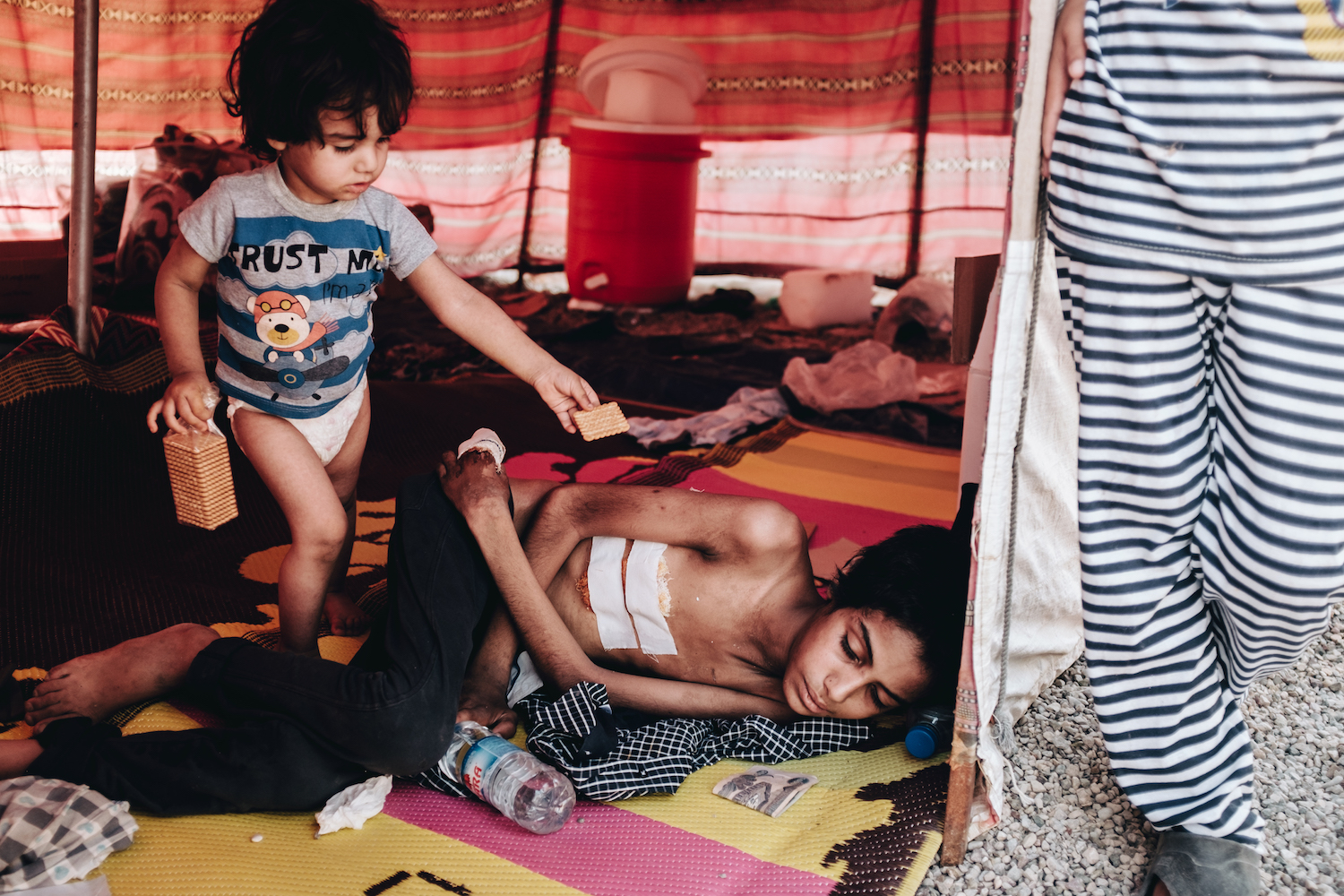 “My son is going to die,” a mother told volunteers while she looked over her children in a makeshift tent. Her son was lying on the floor suffering from malnutrition and a massive wound across his chest. Volunteers looked on in exasperation, and told the mother little could be done for her son. One volunteer gave the boy 5,000 dinar ($4.50) and offered a simple apology.
“My son is going to die,” a mother told volunteers while she looked over her children in a makeshift tent. Her son was lying on the floor suffering from malnutrition and a massive wound across his chest. Volunteers looked on in exasperation, and told the mother little could be done for her son. One volunteer gave the boy 5,000 dinar ($4.50) and offered a simple apology.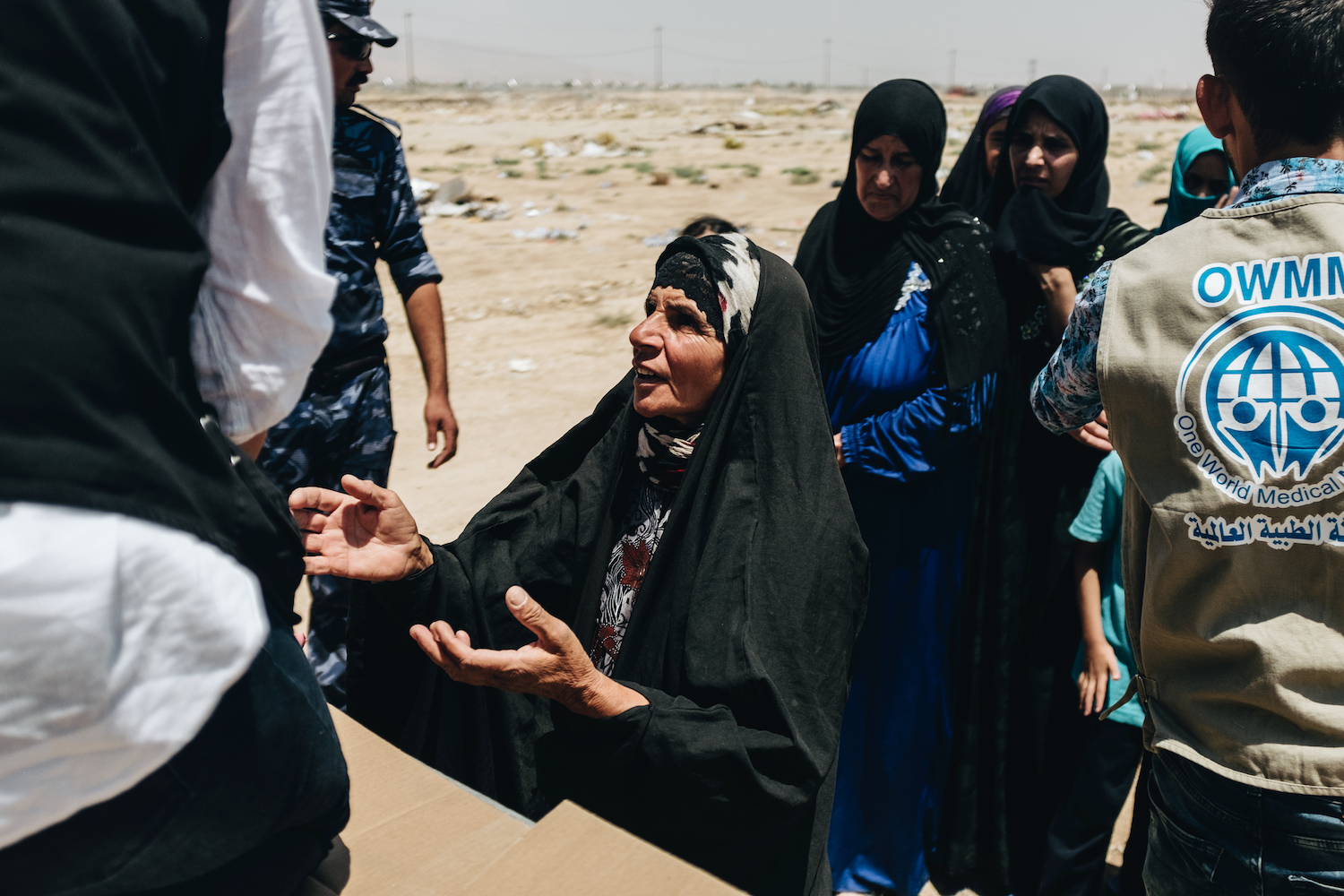 A woman waits to receive aid being distributed off the back of a truck by Wasel Tasel, a local humanitarian NGO and the One World Medical Mission. The majority of the camp was comprised of women and children. In interviews conducted by Human Rights Watch, the refugees all said they had not been formally accused of any wrongdoing, nor had they been given any information as to when they’d be able to leave.
A woman waits to receive aid being distributed off the back of a truck by Wasel Tasel, a local humanitarian NGO and the One World Medical Mission. The majority of the camp was comprised of women and children. In interviews conducted by Human Rights Watch, the refugees all said they had not been formally accused of any wrongdoing, nor had they been given any information as to when they’d be able to leave.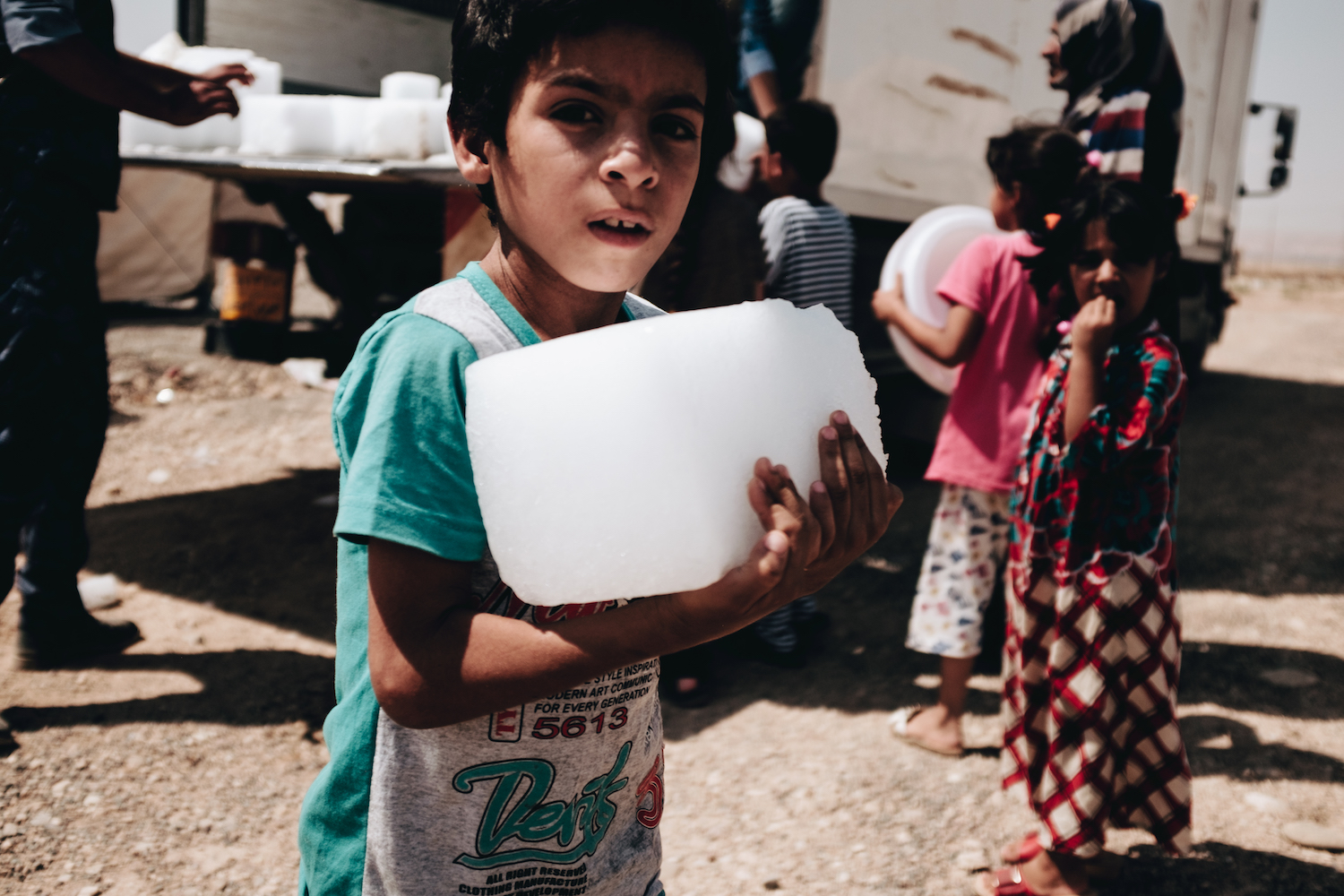 With little to no men in the camp, young boys were often sent to collect blocks of ice for their families. The ice distributed by aid organizations meant families had access to cold water and a rudimentary refrigeration method in the sweltering heat.
With little to no men in the camp, young boys were often sent to collect blocks of ice for their families. The ice distributed by aid organizations meant families had access to cold water and a rudimentary refrigeration method in the sweltering heat.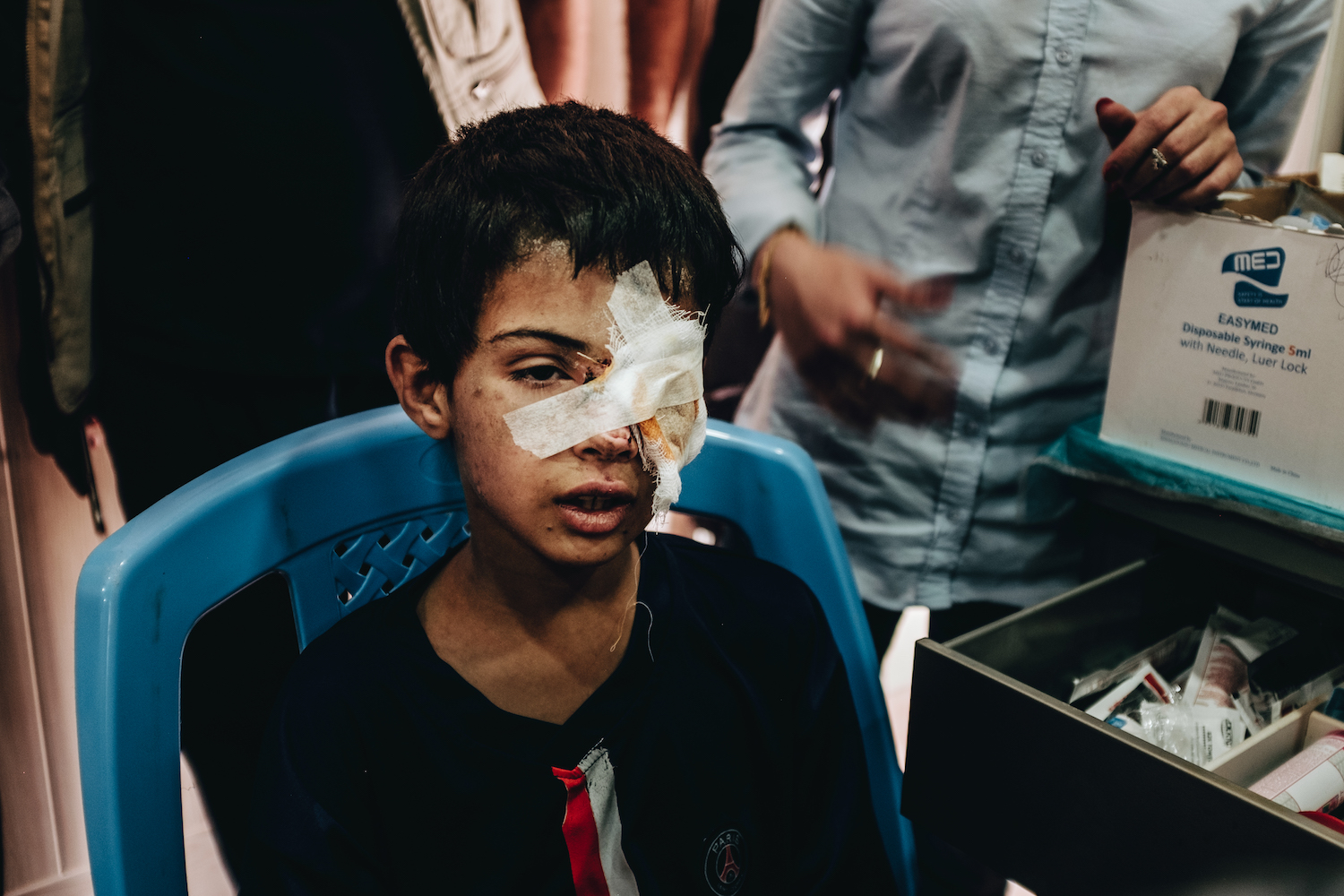 “We are not Daesh,” a mother pleads as she waits for her son’s wounds to be treated by a visiting volunteer doctor. “We just want to leave here.”
“We are not Daesh,” a mother pleads as she waits for her son’s wounds to be treated by a visiting volunteer doctor. “We just want to leave here.”
Advertisement


Advertisement



